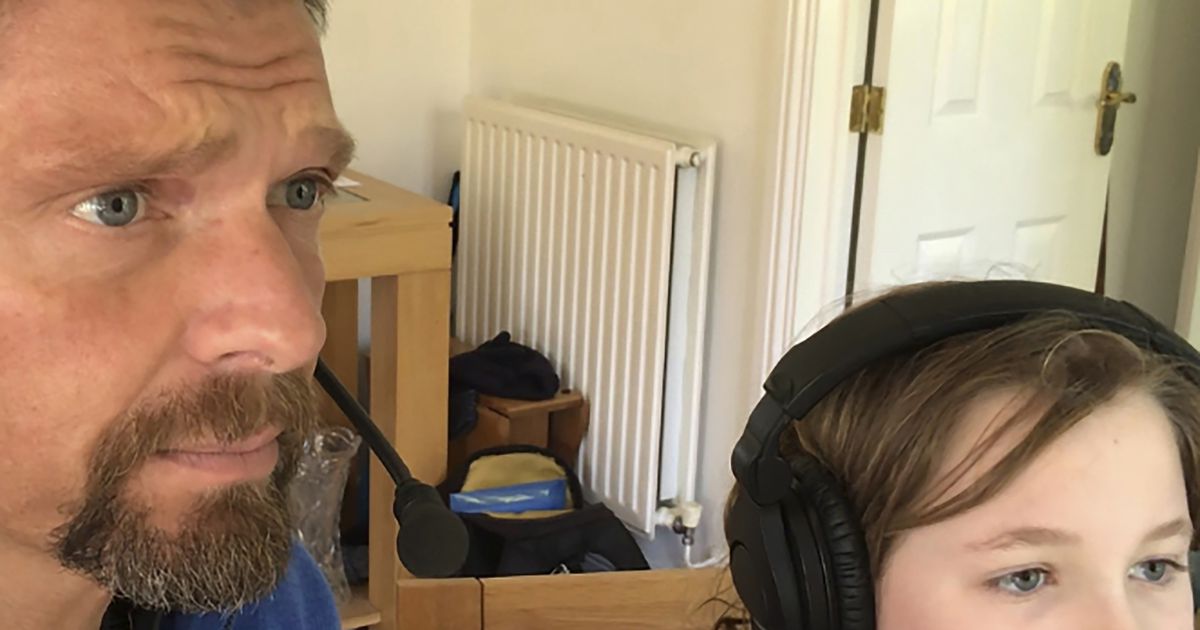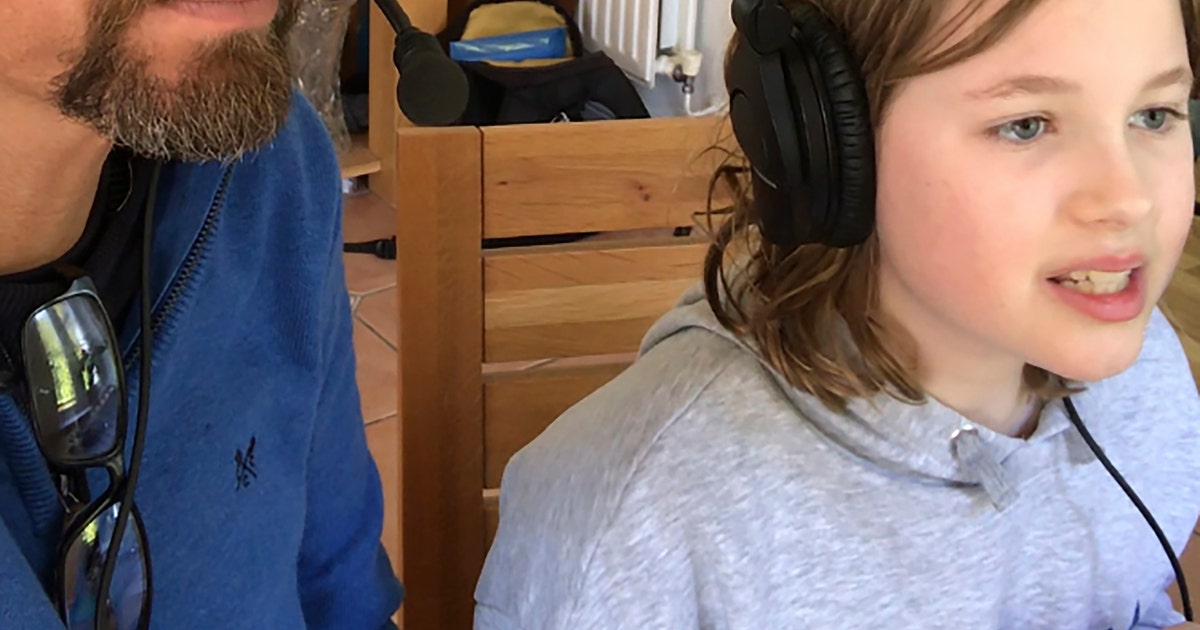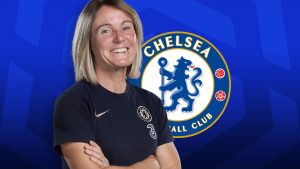Sports announcers get creative as virus wipes out day job


Mark Church was sitting on the end of his bed, coming to terms with the devastating effect the coronavirus outbreak would have on his job as a cricket announcer, when he picked up his phone and did what he does best.
“To cheer myself up,” Church recalls, “I just did a bit of commentary to myself.”
After posting the short video recording on Twitter — of a wicket taken during the 1985 Ashes series — he got his 70-year-old mother to take part in some clips, too. What really sent his notifications “through the roof” was when his 10-year-old daughter, Isabelle, became involved in what he has now labeled “#commentaryathome.”
“We had a 20-minute window before school and I just gave her a few pointers,” Church, a freelancer who works for the BBC among others, said. “I was thinking to myself, ‘She will never get this right, bless her.’ But she nailed it in one take.”
Now, their daily musings — dad as the main announcer, daughter as the analytical sidekick who begins her comments with “well, Mark…” — are getting more than 100,000 views, and are being enjoyed and shared by cricket stars such as Australia captain Aaron Finch and former England captain Nasser Hussain. Perhaps most important of all, they are providing some light relief for those craving a bit of sport in their life.
The global lockdown of sports means it is a strange time not just for athletes but also those who describe the action to the watching public. For announcers like Church, no sport equals no pay. No distractions, either.
So it’s time to get creative.
“I completely understand that what people want at the moment is information. Information, information, information,” said Church, who likely won’t be back at work until June at the earliest, with the start of the cricket season delayed. “But then I think at some point, there’ll have to become a distraction on top of the information.”
That’s exactly what Nick Heath is delivering. A freelance rugby announcer in the UK who calls matches for Sky Sports and Channel Four among other broadcasters, Heath is helping to fill the void in his working life by providing parody commentary on mundane and everyday things, like dogs running around in a park and people crossing the road , or buying groceries at a market .
“Cross-road dash,” Heath says — in a quintessentially British voice — in one of his #lifecommentary videos, “light turns to red, we wait for the beeps, there they are!”
They are proving a revelation, garnering a combined total of more than 2 million views and more than tripling Heath’s Twitter following in a matter of days.
“It turns out that in these slightly curious times, the world desperately needed some levity,” Heath said in a phone interview, “and also needed to scratch the itch of not having any actual sport.”
Heath, who has received some “tempting” inquiries from people in the entertainment world on the back of his videos, has been left humbled by the reaction from those working on the front line during the pandemic.
“They are saying, ‘I’ve got home from work and it’s the first time I’ve managed to laugh all day, so thank you so much,’” Heath said. “For this to be the positive collateral effect is phenomenal.”
Then there’s Clive Tyldesley, one of the best-known soccer commentators in Britain. With much of the country now working from home or in isolation, he has been doing regular “household commentaries” of chores such as cooking and unclogging the shower tray, and posting them on social media.
These amusing videos are doing more than brightening the days of frustrated sports fans. They are a form of practice for the announcers themselves, who need to keep their voices in shape like athletes need to exercise.
“It’s keeping my hand in,” Church said. “I can think to myself, ‘At least I’ve done something constructive today.’ I’m treating it like a net before we get back out there in the middle.”
Joe Buck feels the same. One of the top NFL commentators, Buck is doing commentary on videos his large Twitter following send in, describing them as “practice reps” during quarantine. He takes it up a notch by including slow-motion replays.
One thing these videos don’t do for freelance announcers, though, is bring in any money. And in the UK, for example, the self-employed, who make up 15% of the labor market, have not had their wages protected by the government among its raft of unprecedented financial measures to help workers during the outbreak.
Things are precarious for people like Church, who knows there “will come a point when I have to come up with something.”
Patrick Kendrick is an Italy-based sports announcer who has seen all his commentary assignments canceled because of the coronavirus.
He has decided to “take a break from football” as a result. And with his parallel career as a conference interpreter also wiped out, he is using his spare time to work on his Portuguese ahead of an exam this year.
“For the moment, I’m living off my income from the first part of this year — invoices tend to be paid sporadically anyway so I probably won’t feel the effects of the situation financially until later in the year,” Kendrick said.
He is, however, “resuming English teaching as a short-term measure.”
“The next few months will be tough for freelancers,” Kendrick said, “but those are the risks you take when you’re self-employed.”
In the meantime, Church and Heath will continue to entertain their growing number of followers with their wit and creativity.
“I just hope that by the time sport does reappear,” Heath said, “any of my former employers still take me seriously as a commentator.”








